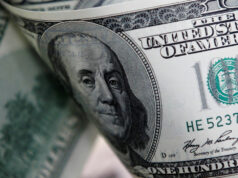BIR checking drink firms’ tax compliance
By Elijah Joseph C. Tubayan
Reporter
THE GOVERNMENT is now checking beverage makers’ compliance with tax laws, the Department of Finance (DoF) said in a press statement on Thursday, citing a shortfall in excise tax collections in the 10 months to October last year.
“The Department of Finance has directed the Bureau of Internal Revenue (BIR) to determine whether beverage manufacturers are paying the correct amount and type of tax, as mandated under the Tax Reform for Acceleration and Inclusion law (TRAIN), after uncovering possible discrepancies in their tax payments which left a P10-billion shortfall in the excise tax collection target for the first 10 months of the year,” DoF’s press release read.
The statement quoted Finance Undersecretary Karl Kendrick T. Chua as saying that the BIR collected P29.92 billion in excise tax from sugar-sweetened drinks as of October against a P40-billion target for those 10 months.
Some beverage firms, he said, may be paying the lower P6 per liter rate that is meant for those using caloric or non-caloric sweeteners, instead of the P12 per liter for those using high-fructose corn syrup (HFCS).
Sought for comment, the Beverage Industry Association of the Philippines (BIAP) insisted that its “members have declared truthfully and accurately the tax payments made for sweetened beverages,” adding that they “will continue to work with DoF and BIR on this.”
Milk, three-in-one coffee and medically prescribed beverages are exempted from this tax.
“My hunch is that those that are supposed to pay the P12 tax are only paying P6,” Mr. Chua said in the statement.
He said that only one company, Coca-Cola Co., has secured approval from the Food and Drug Administration (FDA) to convert its sweetener from HFCS to sugar or other caloric or non-caloric sweeteners, which is charged the P6-per-liter tax. The DoF explained that the FDA should first approve beverage manufacturers’ shift in the sweetener content before they pay the lower rate. “The FDA approved only the conversion for Coke, and that was just last August. So I think many are paying P6 when they should be paying P12,” said Mr. Chua. “That is our concern. I suggest the BIR conduct an audit. They cannot just change the content, per the FDA.”
BIAP said its members have followed the law on the sugar-sweetened beverage excise tax.
“The members of the Beverage Industry Association of the Philippines operate with the highest standards of ethics and integrity. We act responsibly and comply with all laws related to how we operate and conduct our businesses in the Philippines,” BIAP said in a statement e-mailed to journalists.
“Since the TRAIN law was enacted on January 1, 2018 BIAP members have declared truthfully and accurately the tax payments made for sweetened beverages. We have consistently followed the Implementing Rules and Regulations released by the Bureau of Internal Revenue last August 2018. All necessary documents needed to ensure the accurate declaration of the ingredients being used in our beverages, as well as the tax payments being made, have been submitted and/or approved by the Food and Drugs Administration and by BIR, respectively,” it added.
“As partners of the government, BIAP members are committed to ensuring robust tax governance across individual companies, as well as transparency and compliance with all applicable laws and regulations. We will continue to work with DoF and BIR on this.”
The group consists of 13 beverage manufacturers including Pepsi-Cola Products Philippines, Inc.; Asia Brewery Inc. and Del Monte Philippines, Inc.
The sugar-sweetened beverage tax under Republic Act No. 10963, or TRAIN, is a new levy that serves as a health measure.
TRAIN imposed higher tax rates on drinks with HFCS also to favor local sugar cane farmers.
The DoF is under pressure to prove TRAIN’s effectiveness in raking in additional taxes, as programmed, with the House of Representatives Committee on the Comprehensive Tax Reform Program scheduled to review the law’s implementation when Congress resumes session on Jan. 14.
DoF said TRAIN yielded P33.7 billion in revenues in 2018’s first half against a P30.1-billion target for that period, 53.23% of a P63.3-billion full-year 2018 goal.



